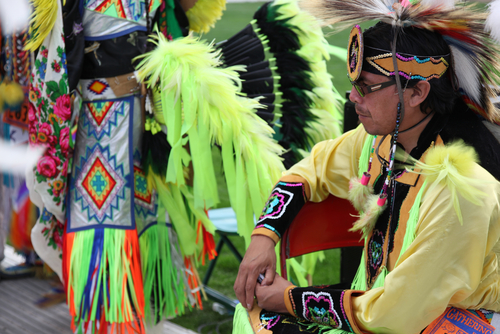Modern Issues Facing the Pueblo Indians
Land rights and water rights are two issues facing Pueblo Indians today. Since the arrival of the first Europeans, Pueblo Indians have struggled to retain access to the lands that their ancestors had used. Except for the Hopi (who did not receive title to their land until 1882, when the U.S. government set aside a reservation for them), most of the Pueblo villages received clear title to the lands beneath and adjacent to their villages from the Spanish government. However, in subsequent centuries, ranchers and others have often settled on, and attempted to gain title to, these lands. More recently, many Puebloan groups have fought to have other lands—outside of their original land grants but nonetheless important to them—returned. One of the most famous examples involves the case of Blue Lake, an important religious place for the people of Taos Pueblo. After a 65-year struggle, the people of Taos succeeded in having Blue Lake returned to them.

Another important issue involves water rights. Winters v United States, a 1908 case, solidified the water rights of Native Americans residing on reservations. Specifically, the courts ruled that tribes on reservations have prior rights to the waters found both on and under the grounds of the reservation. Despite this ruling, known as the Winters Doctrine, Pueblo Indians continue to struggle to maintain access to water rights.
